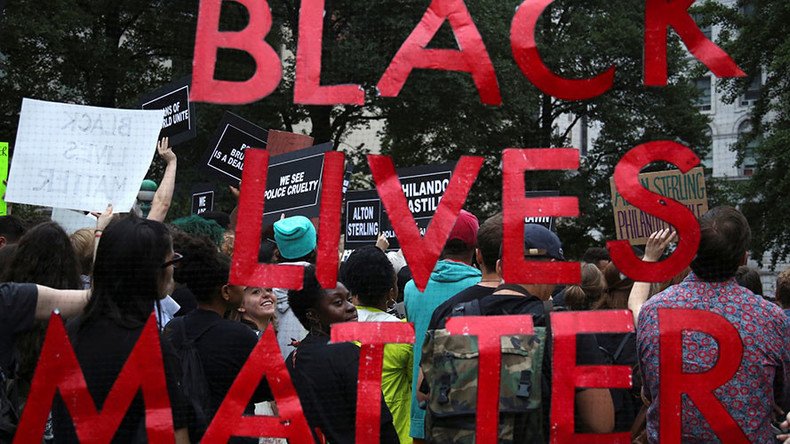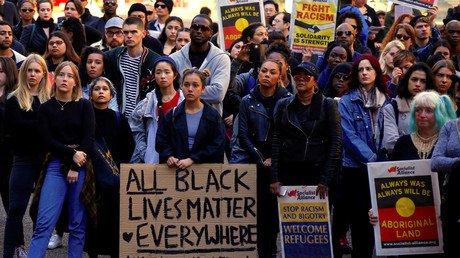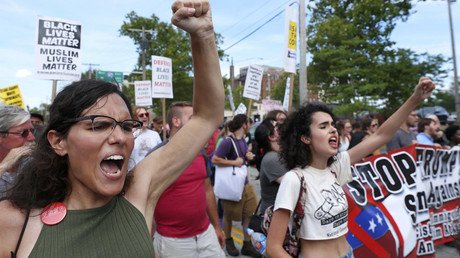#BlackLivesMatter calls for slavery reparations, free education & justice reforms

A coalition of over 50 organizations affiliated with the Black Lives Matter movement has issued a list of demands, calling for reparations for slavery and key criminal justice reforms amid “increasingly visible violence against black communities in the US.”
“We demand that the government repair the harms that have been done to black communities in the form of reparations and targeted long-term investments. We also demand a defunding of the systems and institutions that criminalize and cage us,” the Movement for Black Lives said in a statement released on Monday, highlighting six demands and 40 policy recommendations.
“The government, responsible corporations and other institutions that have profited off of the harm they have inflicted on black people — from colonialism to slavery through food and housing redlining, mass incarceration, and surveillance — must repair the harm done,” the group said, calling for the passage of a bill designed to create a commission to study reparations for descendants of slaves.
The platform demands, among other things, reparations for the “wealth extracted from our communities through environmental racism, slavery, food apartheid, housing discrimination and racialized capitalism” as well as reparations for the “systemic denial of access to high quality educational opportunities in the form of full and free access for all black people (including undocumented and currently and formerly incarcerated people) to lifetime education.”
Slamming the influence a person’s criminal history has on their eligibility for just about everything – from education and housing to voting, loans and employment – the movement specifically called for an "end to the mass surveillance of Black communities, and the end to the use of technologies that criminalize and target our communities (including IMSI catchers, drones, body cameras, and predictive policing software)."
The agenda urges an "immediate end to the criminalization and dehumanization of Black youth across all areas of society” and demands an end to the death penalty in the US.
It also strongly recommends the demilitarization of law enforcement, including law enforcement in schools and on college campuses, saying that educational sites that allow guns “are only causing campus law enforcement to demand armament, creating a vicious cycle of firearms in higher education."
Black Lives Matter was created in 2012 after George Zimmerman was acquitted in the killing of unarmed black teen Trayvon Martin. It is the first time the movement has voiced official demands.
The far-reaching platform was unveiled in light of the second anniversary of the killing of another unarmed black teen, Michael Brown – shot dead by a white police officer in Ferguson.
"It's us saying that we're not backing down," Dara Cooper, an organizer with the National Black Food & Justice Alliance, one of the partner groups, told AP.
"In the tradition of our ancestors and elders who have been in this very long struggle, we're going to keep working toward what we deserve."
"Black life is undervalued and assaulted in myriad ways," Cooper said. "Policing and mass incarceration has so much to do with it, but it's also the education we receive, the type of food we have access to, the ability to be self-determining through land ownership. ... We fight against things, but we also need to be fighting for something," she added.
The US continues to face racial, social, and economic inequalities, inhibiting the basic rights of its citizens, especially people of color, a UN special rapporteur on the rights to freedom of peaceful assembly and of association said last week.
These inequalities are rooted in the history of the US and particularly impact black Americans, UN human rights expert Maina Kiai said, adding that he could not conduct a visit to the US “without issues of racism pervading the discussions.”
“Racism and the exclusion, persecution and marginalization that come with it, affect the enabling environment for the exercise of association and assembly rights,” Kiai stressed.














